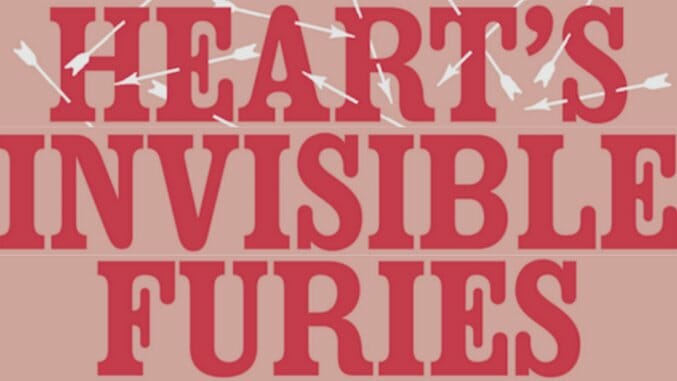John Boyne Has Written an Irish Epic with The Heart’s Invisible Furies

In June of this year, Leo Varadkar made history when he was elected as Ireland’s prime minister. At 38, Varadkar is the youngest person to hold the office. But he also brought down a more significant barrier as the country’s first openly gay prime minister. It comes on the heels of 2015’s referendum that made Ireland the first country to legalize same-sex marriage on a national level through popular vote, and it follows the expansion of LGBT rights in other realms during the past decade. This is all the more astonishing when one remembers that until 1993, homosexuality was illegal, creating a culture of fear and repression for many Irish citizens.
John Boyne, the bestselling author of The Boy in the Striped Pajamas, follows one such citizen in his new novel. Titled The Heart’s Invisible Furies, the book follows Cyril Avery as he struggles to come to terms with his sexuality and his place in Irish society over a lifetime.
 Cyril knew he was gay from age seven, when he met and fell in love with Julian, a charming boy who became Cyril’s best friend. But Julian doesn’t return Cyril’s feelings, and out of fear and shame, Cyril is unable to come clean about his lifelong love. Cyril’s tension becomes too much to bear on the morning of his marriage to Julian’s sister, Alice, when he admits everything and flees during the reception. In the years that follow, Cyril spends time in Amsterdam and New York, patching together a family and overcoming an identity crisis caused by his repressive upbringing. When he returns to Ireland years later, he has to make amends to the people he hurt when he was young, afraid, and overwhelmed.
Cyril knew he was gay from age seven, when he met and fell in love with Julian, a charming boy who became Cyril’s best friend. But Julian doesn’t return Cyril’s feelings, and out of fear and shame, Cyril is unable to come clean about his lifelong love. Cyril’s tension becomes too much to bear on the morning of his marriage to Julian’s sister, Alice, when he admits everything and flees during the reception. In the years that follow, Cyril spends time in Amsterdam and New York, patching together a family and overcoming an identity crisis caused by his repressive upbringing. When he returns to Ireland years later, he has to make amends to the people he hurt when he was young, afraid, and overwhelmed.
-

-

-

-

-

-

-

-

-

-

-

-

-

-

-

-

-

-

-

-

-

-

-

-

-

-

-

-

-

-

-

-

-

-

-

-

-

-

-

-








































